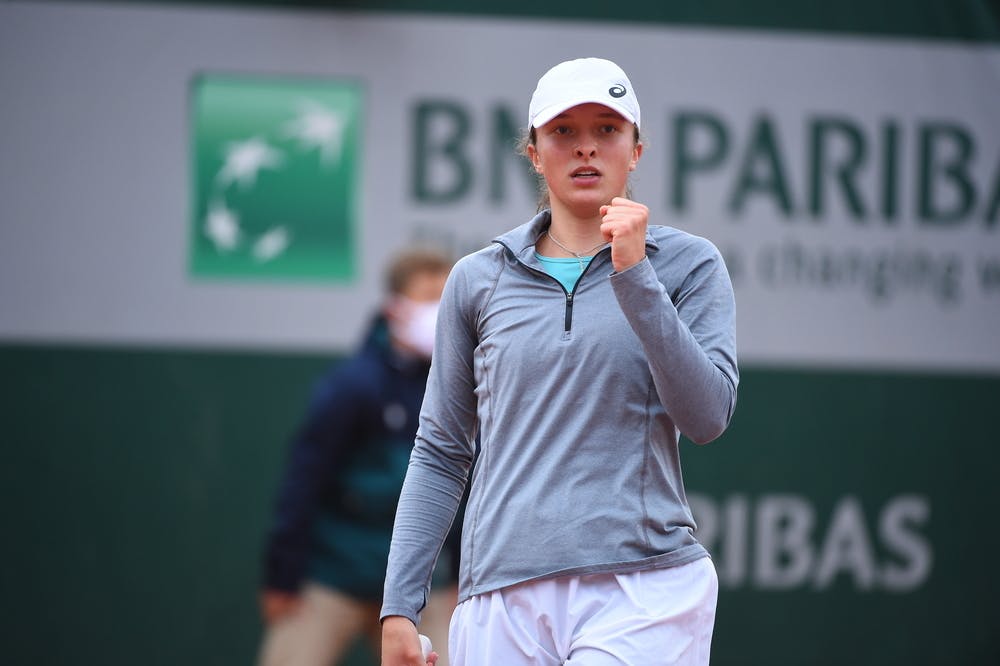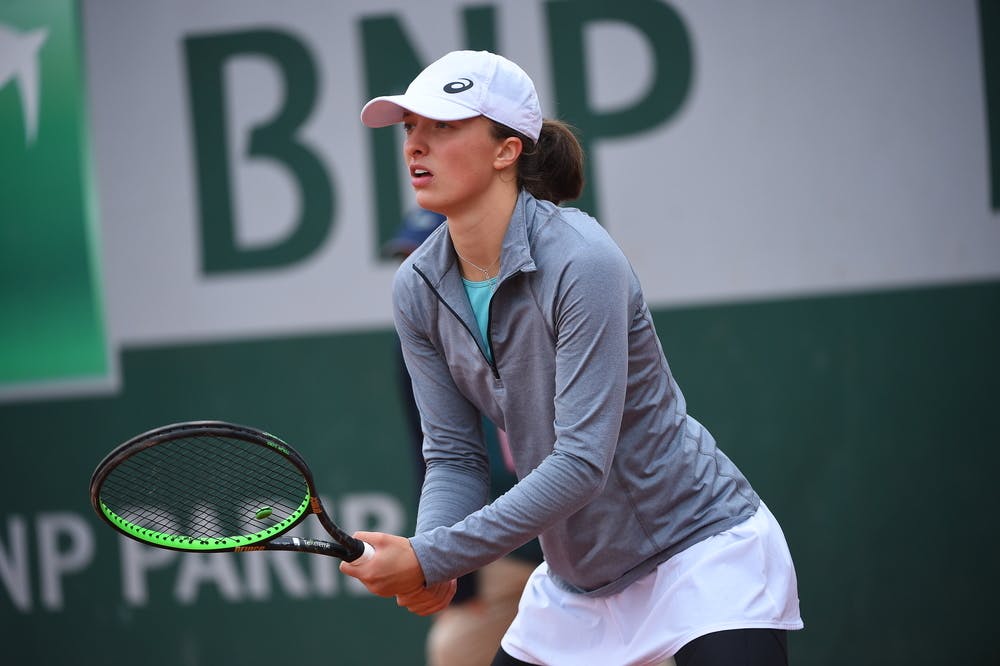Swiatek was also one of the biggest stories of Roland-Garros in 2019. She reached the round of 16 on her Paris debut, there joining a talented trio of teenagers, which included Vondrousova, then 19, and American Amanda Anisimova, then 17.
Swiatek has learned the opposite about momentum: it can be created away from the match court, in the mind. She admitted she had experienced a long, difficult process rebounding from tough losses in New York this summer.
She said she built up so many expectations ahead of the US Open, that it inhibited her ability to perform.
"It was really hard for me to come back from this Covid break,” she said, referring to a two-tournament stretch that saw her go 2-2 and lose to Victoria Azarenka in the third-round of the US Open. “I felt a lot of pressure. I was really stressed when I played in New York.”
Swiatek said the long process of rebuilding her mental state began in New York with her team, which features coach Piotr Sierzputowski, and her sports psychologist, Daria Abramowicz.
“I think going back to the good state I'm in right now it was a long process and it started at the Western & Southern Open, so I really needed a lot of time, but that was the first time I had such high expectations in my career, so it wasn't easy,” she said. “And I feel like next time it's going to be better because right now I have more experience and maybe from the beginning I'm not going to put a lot of expectations on myself."
 ROLAND-GARROS
18 May - 7 June 2026
ROLAND-GARROS
18 May - 7 June 2026



